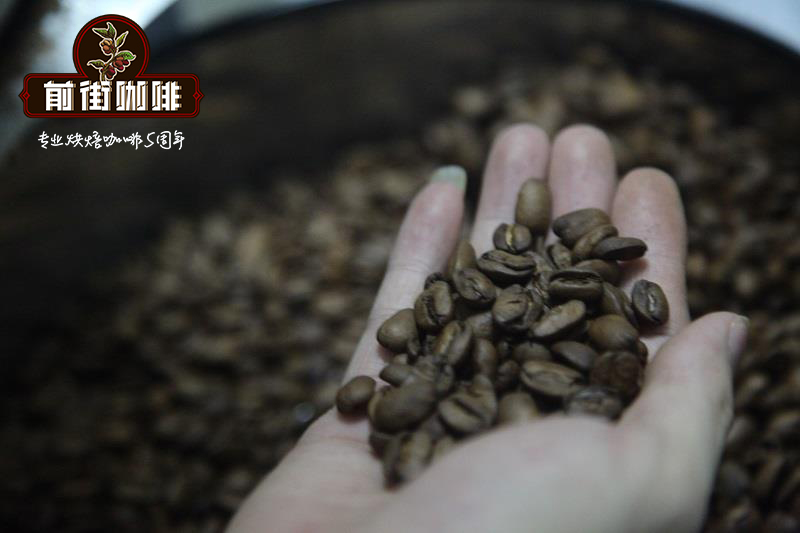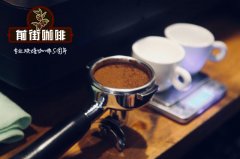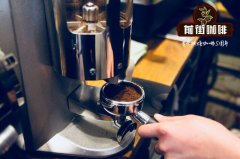Principle of Italian coffee bean extraction guidelines for the use of Italian coffee beans Italian coffee bean baking science

Professional coffee knowledge exchange more coffee bean information please follow the coffee workshop (Wechat official account cafe_style)
What is the concept of blending Italian coffee beans?
From trying all kinds of machines, to understanding the principle and science of extraction; from baking commercial beans to the charm of shallow roasting; to come into contact with boutique coffee, to see the mystery of the local soil. To mix and match beans with different characteristics, this is another world. General Italian coffee beans are imported either from Italy or Seattle. I once bought freshly roasted Italian coffee beans directly from the origin, excluding the time factor of international shipment. to understand the purpose of deep baking. As far as individual coffee is concerned, although the flavor difference brought by the year is not big, these slight differences will be magnified after the beans are synthesized, so the deep roasting can facilitate the control of the quality to obtain the average taste, reduce the flavor difference brought by the year, and it is more durable to store.
In addition to espresso, lattes are mixed with milk and coffee, and the flavor concept is different. Here, the purpose of coffee is to highlight the sweetness of milk, so the objective goal of Latte is that the coffee itself is mellow, and after adding milk, it tastes like cocoa, so a good cafe should have more than two bean recipes, one for brewing espresso and the other for making lattes.
For Specialty Coffee, what you want to think about is relative to what and Special? In fact, the person who proposed the term Specicalty Coffee does not define its relative concept, nor does it have such a saying as Generally coffee. Some people in Taiwan call it "commercial beans", but the production and roasting of boutique coffee are also commercial practices, and the name commercial beans is not enough to explain the difference. So I think the relative term of "boutique coffee" should be called "futures coffee", which is the product of mass production after industrialization. Since coffee is, after all, an agricultural product, mass production carries the risk of instability. In trading, in order to maintain a certain level of quality and risk aversion, only a certain level of quality (for example, 18 mesh as a screening standard), coffee beans with origin and nationality are required, and most of them are traded on futures exchanges.
I believe that in order to distinguish Specialty coffee from it, it emphasized that it could be meticulous to the producing areas or even manors, so it was translated as "manor coffee". This can be proved by the fact that traders of boutique coffee and producers such as coffee farmers or processing plants are "priced at a certain percentage of the futures price". Of course, "futures coffee" is a personal cognition, not an international definition. Only by so explaining can we understand the focus of the so-called "boutique coffee". If we take tea as an example, for foreigners, Taiwan tea is collectively referred to as "Taiwan tea", but local people in Taiwan are not satisfied with this concept, so we will emphasize Alishan tea, pear mountain tea, Nantou fish pond tea, and so on. Similarly, lovers who pursue a higher quality coffee flavor will look for more specific producing areas and even buy raw beans directly from the manor.
I have always believed that roasted coffee is not suitable for international trade, because raw beans only have a life span of about 7-14 days after roasting, even by air transport. Coffee is definitely a product made on the ground, and it is necessary to import raw beans for roasting. Different varieties, local conditions and treatment methods in different producing areas will cause differences in flavor. For example, coffee gardens in Costa Rica do not plant shade trees because of their low clouds and strong shading effect, so the taste is relatively light. In addition, Brazil has vast plains, so it will naturally choose the "solarization method", while Costa Rica, Guatemala and Nicaragua all have high elevations and limited space, so they will adopt the "washing method".
Important Notice :
前街咖啡 FrontStreet Coffee has moved to new addredd:
FrontStreet Coffee Address: 315,Donghua East Road,GuangZhou
Tel:020 38364473
- Prev

Introduction to the process of Italian coffee beans using Italian coffee machine introduction of taste and flavor of Italian coffee beans
Professional coffee knowledge exchange more coffee bean information please follow the coffee workshop (Wechat official account cafe_style) Italian coffee beans-House Blend espresso beans are cama unique formula beans, with Central, South America, Africa and other selected Arabica beans, carefully prepared to show its unique flavor and richness, the entrance is sweet, the layer is good, the golden proportion is mixed; glycol, alcohol,
- Next

The extraction of espresso the recipe for standard espresso brewing and coffee beans is
Professional coffee knowledge exchange more coffee bean information Please follow the coffee workshop (Wechat official account cafe_style) there are so many ways of brewing espresso, why did you choose to study espresso? Okay, what are the extraction criteria? The common painful experience of all coffee beginners is that they don't know the objective criteria of coffee, including the flavor of beans, how fine they should be ground and how to cook them.
Related
- Guji coffee producing area of Guji, Ethiopia: Humbela, Shakiso, Wulaga
- What is the most expensive variety of Qiloso in BOP multi-variety group?
- How to store the coffee beans bought home?
- Why are Yemeni coffee beans so rare now?
- Ethiopian Sidamo all Red Fruit Sun Sun Santa Vini Coffee beans
- SOE is mostly sour? What does it mean? Is it a single bean? what's the difference between it and Italian blending?
- Is Italian coffee beans suitable for making hand-brewed coffee?
- How to choose coffee beans when making cold coffee? What kind of coffee beans are suitable for making cold coffee?
- Just entered the pit to make coffee, what kind of coffee beans should be chosen?
- Can only Japan buy real Blue Mountain Coffee? What are authentic Jamaican Blue Mountain coffee beans?

